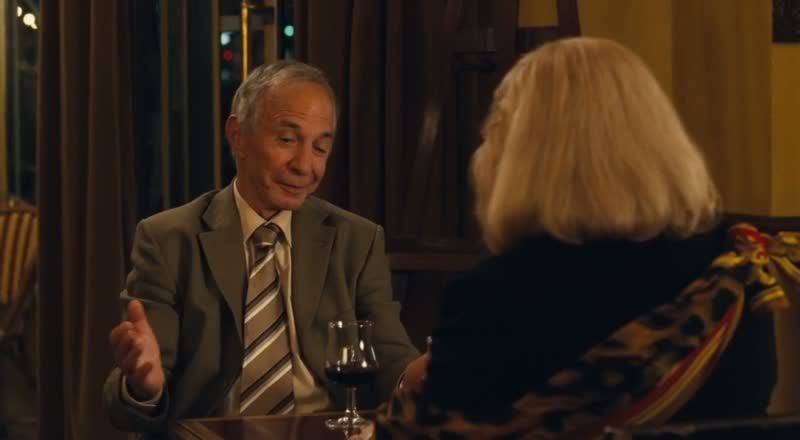
Paris je t'aime is an ambitious anthology film that compiles 18 short films by a multinational group of directors, each of them focused on Paris from many different angles. As is the nature with films like this, it's an uneven affair, packed with some bright spots, some total failures and a heaping portion of mediocre fare that passes by without leaving much of an impression one way or another. Perhaps even more than most other portmanteau films, this one suffers from the schizophrenic leaps from one short to the next, because there are just so damn many of them and as a result no director gets more than a few minutes to tell a simple story. Many of the best segments here work within those limitations, realizing that the best way to make something satisfying in such a short time is simply to craft a well-acted, cleverly written dialogue scene that stands alone, suggesting a larger untold story between the lines. A few directors attempt something more ambitious and a few take more experimental approaches, but most of the best work found here presents a self-contained, intimate single scene.
A good example is Frédéric Auburtin and Gérard Depardieu's Quartier Latin, which consists entirely of a conversation between a divorcing couple played by Gena Rowlands and Ben Gazzara. The segment gets by entirely on the charm of the actors, the casual way they trade gently barbed insults, smiling all the while, an affectionate older married couple who might even stay together if they weren't already so thoroughly on the path towards separate lives. The dialogue has a fizz and crackle that's especially well-suited to Rowlands' brassy bravado and razor-tongued wit, while fellow John Cassavetes veteran Gazzara radiates gravel-voiced aging machismo. It's a great piece that pays tribute to the two actors' careers and histories, providing an affectionate ode to the cinema of Cassavetes by casting two of his finest actors in roles that draw on their full, well-lived lives, on-screen and off. A similar tone inflects Richard LaGravenese's Pigalle, another showcase for and love letter to aging stars, in which Fanny Ardant and Bob Hoskins play an old showbiz couple who enjoy playing roles, acting out, talking through their troubled marriage in grand gestures, theatrical slaps and sexual gamesmanship. As in the Rowlands/Gazzara scene, this segment is at least in part about the stars themselves, their personae and their screen histories, and like Quartier Latin it's a charming, subtly funny piece with wit to spare.
That seems to be a key in this film, and the pieces that showcase witty writing and well-timed dialogue exchanges definitely stand out. Wes Craven, of all people, turns in a charming, low-key piece about an engaged couple whose relationship is salvaged by the intervention of the shade of Oscar Wilde (Alexander Payne). It's a slight little trifle, but it's redeemed by the pattering dialogue and the chemistry between the always delightful Emily Mortimer and Rufus Sewell. So many of the other segments aren't even this entertaining or memorable; where Craven offers a simple premise and a few smile-worthy lines, many other vignettes here are forgettable and bland. Walter Salles and Daniela Thomas' Loin du 16e is a stripped-down and nearly dialogue-free observation of a Hispanic maid dropping off her baby at daycare before going off to take care of a French woman's child. The irony is obvious, as is the parallel between the maid singing a sad lullaby first for her own child and then for the one she's taking care of, but it all just seems so slight and pat. A scene like this could be effective as part of a longer feature, a series of moments eventually accumulating emotional heft and context, but here it just feels like a disconnected sequence that abruptly cuts off.
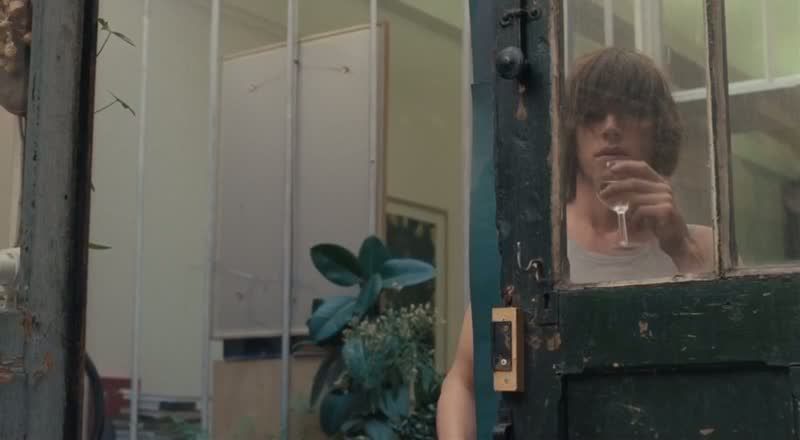
The same could be said for Gus Van Sant's short Le Marais, in which a man chatters in French to a quiet young man who, it turns out, doesn't understand French. Again, there's just not much to it. Van Sant's camera gracefully follows the nervously energetic tics and pulsations of the talkative guy coming on to the non-responsive guy he's just met, so it's visually elegant but doesn't lead anywhere. Van Sant's films, generally, accumulate weight through a succession of unshowy, casual scenes like this, but in isolation there's just not enough to it. Van Sant's meandering pacing and off-the-cuff aesthetics are poorly suited to this short of a time frame; he needs some canvas to stretch out on and here the scene just feels like a teaser for a fuller story that never comes.
Other shorts suffer, like the Salles/Thomas piece, for presenting some painfully unsubtle sociopolitical content. Gurinder Chadha's Quais de Seine is little more than a pat message about tolerance in which a young boy breaks away from his friends — who are shouting crude come-ons to passing women — to help a young Muslim girl who's stumbled in the street. Everyone else just laughs, and his friends later make nasty and stereotypical remarks about Muslims, but he is kind to her and earns the beautiful girl's friendship. A very touching lesson, for sure, but the seams are so obvious it might as well be an after-school special. Meanwhile, Christopher Doyle's baffling Porte de Choisy seems to have a similar policy of ethnic tolerance at its core — this time suggesting that Asians should avoid Westernizing their appearances and embrace their own cultural ideals of beauty — but it's hard to tell because the film is just so daft and wacky. The colorful, lively style that cinematographer Doyle has always brought to the films of Wong Kar Wai is apparent here, but the bargain-basement surrealism is far removed from Wong's much more assured aesthetics. Doyle engages directly with Western stereotypes about Asia by splattering the screen with kung-fu moves, eerily grinning beauty pageant contestants, Buddhist monks, busty girls in military uniforms, and Hawaiian hula dancers. It's hard to know what to make of this garish, confounding stew of clichés and avant-garde disjunctions, but it certainly stands out from the rest of the film, for good or ill.
Indeed, several of these pieces stand out by digressing from reality, usually not to the most inspiring effect. Vincenzo Natali's Quartier de la Madeleine is a wince-inducing silent vampire story filmed in a grayscale monochrome with bright red "blood" that's obviously just paint. Olga Kurylenko plays a vampiress who falls in love with wide-eyed Elijah Wood, and turns him into a vampire so they can gleefully feed on each other's necks, at which point the short ends with a heart-shaped iris-in. It's a bland piece made worse by its aesthetically tone-deaf blending of silent film homage with a slick, glossy visual style that makes the leads look like they're made of plastic. Also distractingly bad is Sylvain Chomet's short about a mime who is snubbed everywhere until he meets a female mime to share his antics with. The attempts at charm and whimsy seem forced, especially in the framing device in which the mime couple's chatty son introduces the story of how his parents met.
Other segments are diverting, with minor pleasures but nothing more substantial. The Coen brothers' decision to base their Tuileries around the face of Steve Buscemi is a brilliant comic choice, as the actor broadly mimes his reactions to a passionate French couple who include him in their tumultuous, violent way of teasing each other. Buscemi's bug-eyed mugging is always a pleasure to watch, and the Coens structure the sequence around his silent incomprehension of French, keeping the American actor silent while the French couple yells and chatters at him. The broad comedy of it works, and the aesthetics suggest that Buscemi's character is a silent movie hero in a sound world, telegraphing his confusion and frustration entirely through the expressions on his malleable face. Alfonso Cuarón offers up an even more rarefied pleasure: the gritty joy of hearing Nick Nolte speak. The actor's raspy drone is the real star of Cuarón's basic little short, which consists almost entirely of a tracking shot along a street as Nolte's character has a conversation with a younger woman (Ludivine Sagnier). Cuarón keeps the camera at such a distance, tracking along on the opposite side of the street from the actors, that the aural component has to drive the short, and Nolte's distinctive voice would make it obvious that it was him even if he wasn't onscreen at all. The short's conceit is too cutesy by far, keeping the relationship between the two people ambiguous through vague dialogue, and the lame little "twist" at the end is eye-roll-inducing, but Nolte and Sagnier's largely verbal and enjoyable performances prevent it from being a total loss.
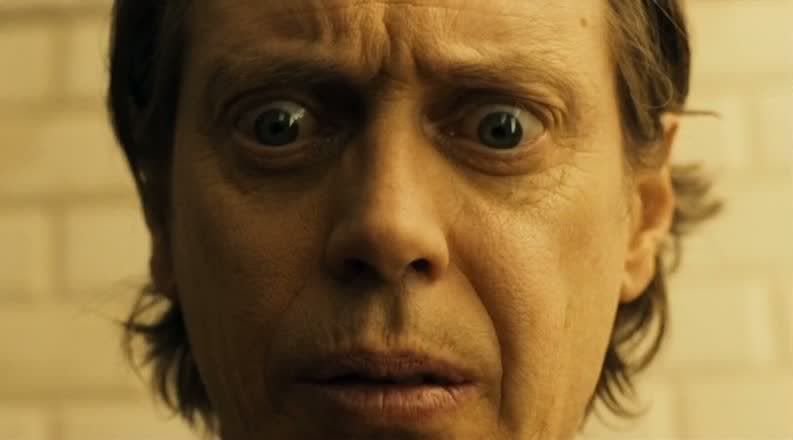
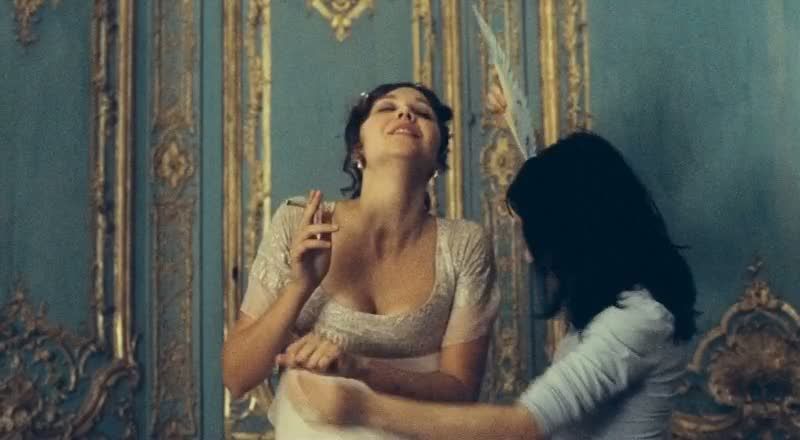
One of the better shorts, unsurprisingly, comes from Olivier Assayas, whose Quartier des Enfants Rouges plays out like an excerpt from one of his features, a deleted scene, but somehow avoids feeling as incomplete or insubstantial as the similarly truncated Van Sant sequence. Assayas focuses on an American actress (Maggie Gyllenhaal) in Paris to shoot a costume drama, buying drugs and feeling a brief flicker of romantic feeling for her dealer. It's a simple piece that, typical of Assayas, is all about mood, and it gets across a wealth of feeling in its economical few minutes. So many of the usual Assayas tropes are there — the cluttered and drug-hazed parties, the hesitant connections and uneasy communication, the movie business milieu that makes this seem like a lost Irma Vep outtake — and it's a beautiful, affecting little short. Assayas' love of actresses carries over to his affectionate, sympathetic filming of Gyllenhaal, who turns in a subtle, quiet performance largely without dialogue, portraying a woman trying hard to have fun in a foreign land, but feeling lonely and craving some connection that she can't quite express.
Tom Tykwer arguably takes the most ambitious approach out of any of the featured directors. His Faubourg Saint-Denis is about a blind young man (Melchior Beslon) who receives a phone call from his girlfriend (Natalie Portman) in which she seems to be breaking up with him. As a result, he flashes back through a sped-up summary of the entire history of their relationship, starting with their first meeting and then gradually speeding up to touch on significant moments in the rush of routine. A breathless voiceover recounts the ways in which their relationship gradually settles into familiar patterns, and the writing of this narration cleverly uses repetition and the gradually increasing frequency of certain words to suggest the shifts in their relationship. By the end, words that had appeared only occasionally in the voiceover come to dominate it, suggesting just how much this relationship has changed, mostly for the worse, over its course. From intimacy and excitement the mood changes to alienation and fragmentation, simply by altering the balance of how often certain events recur and the context in which they occur. The girl's screams chart the course of the relationship. They meet because she's screaming, rehearsing a part in a play, and early in the relationship he's charmed by her screams, by her playful habit of yelling on a subway or a shouted orgasm. Later, screaming signifies arguing, slamming doors, angry words, shifts into negativity. Tykwer defies his short allotted time by cramming the whole length of a relationship into this scant length, condensing this romance into key words and key events, providing a formalist breakdown of a possibly evaporating love. It's an affecting and aesthetically bracing piece, and Tykwer is one of the few directors here to really do something interesting with the short form beyond staging a quick little scene and getting out.
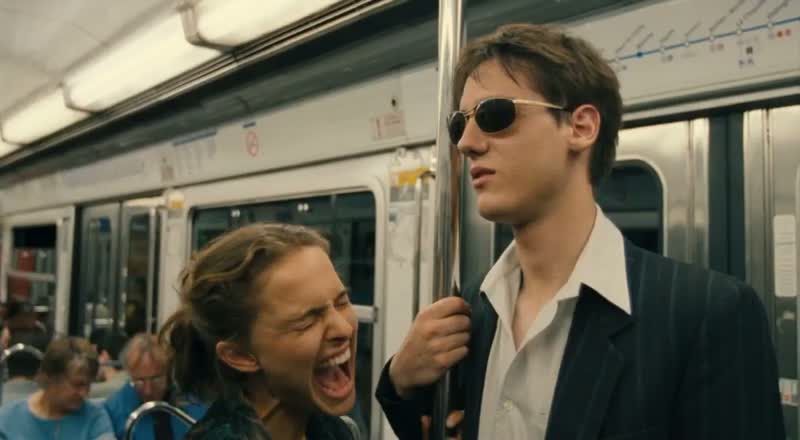
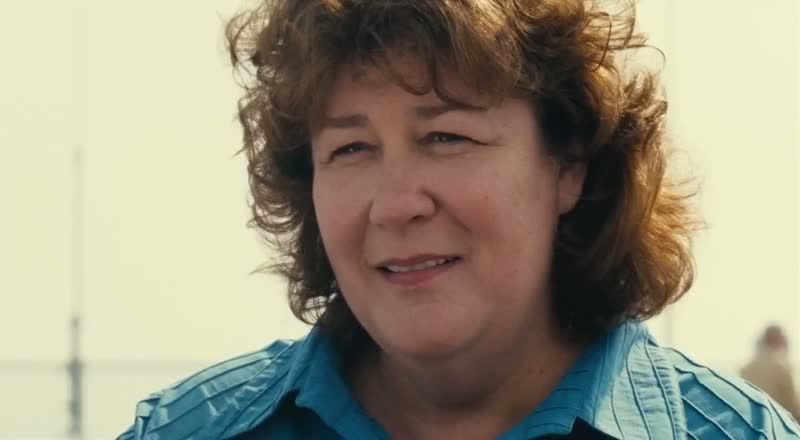
Alexander Payne's 14e arrondissement is also quite interesting, and very typical of Payne's unflinching observation of lonely or emotionally troubled people. It's the story of a middle-aged American postwoman (Margo Martindale) abroad in Paris for a vacation by herself. The short is narrated in this woman's awkwardly accented, faltering French, and it's a rather heartbreaking portrait of someone who's alone in the world but doesn't give in to despair, instead finding pleasure in exploring a foreign place by herself. There are signs of that condescension and nastiness that sometimes creep into Payne's treatment of middle American characters like this, as in the cheap shot where Payne cuts to an image of a greasy fast food burger in response to the narrator's disappointment that French food isn't as good as she'd expected. Surprisingly, that's one of the only moments where Payne takes that kind of mocking oh-those-silly-Americans tone. For the most part, Payne's perspective on this character is empathetic and warm, and the short (which is wisely sequenced last in Paris je t'aime) ends with a sweet moment in which the woman looks from children playing to lovers kissing to an elderly couple talking, as though seeing the entirety of a human life spread out across the lawn of a Parisian park.
Many of the other pieces here are just trite and forgettable. Nobuhiro Suwa wastes the excellent Juliette Binoche in a lame attempt to tug at heartstrings with a story of a mother grieving for her dead son. She runs into the street and encounters a cowboy — Willem Dafoe, channeling the infamous cowboy of David Lynch's Mulholland Dr. — who briefly reunites her with her son. It's pointless surrealism and pointless maudlin tripe, especially since it ends with the woman rapturously telling her husband that God has given her strength. Huh? God's a cowboy? I guess? Bruno Podalydès' Montmartre is just inoffensive and boring in comparison, a meet-cute in which a lonely man romances a woman who faints by his car. Oliver Schmitz's segment similarly suffers from its bland premise, in which a female paramedic cares for a man who's been stabbed, while flashbacks show that the events that led to this moment include the man's romantic obsession with the paramedic, who he'd pursued ever since randomly running into her in a parking garage some time before. It's an O. Henry-esque bit of irony that hardly seems earned by these inconsequential, ill-defined characters. In Bastille, Isabel Coixet uses voiceover narration to tell the compressed story of a man who is about to leave his wife until he learns that she is dying, at which point he devotes himself to her anew and falls in love all over again. The voiceover essentially provides a summary of what might have been an interesting movie if it had actually played out with some detail, some real scenes and real characters. As is, it's like a pitch for a movie rather than an actual story in itself.
As a whole, Paris je t'aime is unfortunately weighted down by more chaff than wheat. With so many shorts at just a few minutes each, more than a few of these segments feel like they required more room to stretch out and really develop something. (On the other hand, a few others are so slight they could barely sustain thirty seconds.) There are some real gems here and some other shorts that have their moments, but these sparks of vitality and interest are all too often overwhelmed by the many shorts that are barely remembered three segments later, let alone after the movie ends. All anthology films are flawed almost by necessity, and Paris je t'aime proves that the more fractured a portmanteau film is, the more different visions it attempts to cram into one container, the less satisfying it is in the end.

5 comments:
Damn, this is thorough! Other than watching the Payne short for our Conversations piece, I haven't seen this in full since its theatrical release, so I can tell you what stuck in memory:
On the positive side, I loved the frenzy of Tykwer's piece (I think it's "Tykwer," yes?), which was channeled toward something, unlike Doyle's, yes, "baffling" short that bored me within a few minutes with its desperation to be zany. I also love the Salles piece; yes, it's slight, but perhaps more than any other short in the film it make a cinematic statement about the district(s) it's portraying. As it unfolds, it seems like not much, but it lingers, powerfully. Also, I agree that Craven's entry is sneaky strong, and I like the Payne entry, and I very much remember adoring the Assayas piece, although, for what it's worth, I can't remember a thing about it, beyond the fact that Gyllenhaal stars and plays an actress and I think talks on her cell phone at one point.
On the negative side, other than Doyle's piece, and several plain forgettable ones I won't bother with, I thought Van Sant's piece was trying way too hard to go not very far, and while you enjoyed the Cuaron piece, I imagined him saying: "I don't have anything to say, but we'll do it in one long take, so it'll be brilliant! And who cares if the shot itself isn't even interesting!"
The piece I think you're much too hard on is the one with Binoche. What you call "pointless maudlin tripe" seems to me a bold dive (because there isn't time for anything less) into a very heavy topic. I realize there's a lot of cute fantasy stuff in it, and not all of that worked for me, but the bottom line emotion is right on: the desire of the parent to hug their child just one more time knowing this time that it'll be the last time. If you approach it from the perspective of a parent who isn't just dealing with the loss itself but also the lack of opportunity to see the end coming, I think it plays rather well. (In the least, it certainly has a point.) Then again, it's been about five years, so maybe it just plays well in memory.
Good job, dude.
I watched this not too long ago for our conversation, and already a lot of it is fading, which confirms my impression that lots of these shorts are very disposable and slight. The Salles piece hasn't lingered for me like it has for you, though I agree with you that Van Sant's contribution was disappointingly bland.
Doyle's "desperation to be zany" - that's a perfect description of that short.
I don't really disagree with you about Cuaron's short, it's really slight and leads only to a lame twist. I just enjoyed the verbal back-and-forth between Nolte and Sagnier, so even if the short isn't too memorable or formally interesting it had some appeal.
With the Binoche one, I guess I just felt like the aesthetic approach was way too cutesy and contrived to deal with such an intense emotion. I appreciate that what you describe is the emotional territory it was trying to explore, but for me there was too much in the way of really feeling that emotion.
I didn't find anything bland about Gus' episode. it's a perfect encapsulation of a coup de foudre made all the more amusing by the fact that the object of Benoit Magimel's attention is Elias McConnell -- the student photographer from Elephant. All this and Marianne faothful too!
My favoirte episode, however is the Chris Doyle in that it gives Barbet Schroeder one of his best acting roles. While he's acted frequently (for everyone from Eric Rohmer to Wes Anderson) I'm sure he's never thought of himself as an actor per se. But the charm and elegance he exhibits here amidst these wild -- and wildly fashion-conscious -- Chinese women, is something to see. Almost as delightful as his climactic turn in Celine and Julie Go Boating.
The Payne episode is lovely too. And Payne himself makes a nice Ghost of Oscar Wilde.
Schroeder's performance in the Doyle short is fine, but otherwise it doesn't deserve to be mentioned anywhere near Celine and Julie.
Payne definitely made a good Wilde, that was a pretty cool cameo.
I see a Family Resemblance
Post a Comment